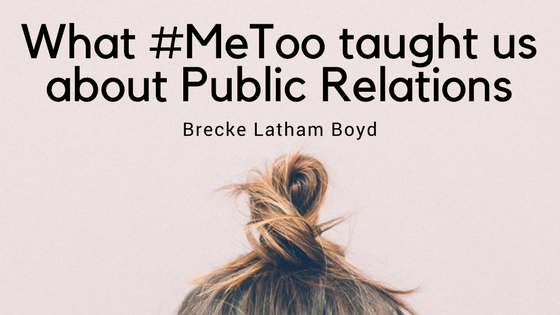No one saw it coming, and then no one could escape it — the #MeToo movement spread unstoppably into every fathomable corner of the internet, every single industry, and literally countless thought pieces about women’s and gender relations.
Sparked by barrage of bombshell stories about high-profile individuals publicly accused of sexual harassment or assault, the #MeToo movement encouraged individuals, by and large women, to share their stories and experience being harassed or touched against their will. The slogan itself was started by activist Tarana Burke to bring attention to the commonness of sexual assault and harassment despite its receiving remarkably little attention in local, national, or global news. The slogan was coined in 2006 and saw exponentially increased use when actress Alyssa Milano used it to describe an episode of harassment and encourage other internet users to do the same.
Nearly overnight, the hashtag had pushed out all other status updates or posts on nearly every social media network and forced a national conversation about company policies regarding the climate of tolerated misbehavior. The movement grew to such great heights that Time named the “silence breakers” who helped propel the movement to international notoriety “Person of the Year,” and profiled several of the women who have taken a risky and brave stance by calling out those who had wronged them in very visible ways.
Natural disasters, marketing campaigns, and activists have long used the hashtag as a way of organizing all discourse about a certain topic and a means to include every social media user in the conversations. None, though, can even rival the way #MeToo took off, and the public relations world was thrown into a bit of a tail-spin regarding how to internalize and capitalize on the popularity of the phrase on behalf of various individuals, companies, or corporations.
Some PR organizations took the opportunity to address the way social media has been a tool of social activists and explore the ways #MeToo was a force for gender equality. Many revisited a history of sex discrimination and how, despite the leaps and bounds the corporate world has come, there’s still lots to be done.
However, others had to scramble as some of their clients came under fire for their actions, some incredibly recent and other decades old. Some chose to issue in-depth apologies, others denied everything, and still more asserted that their clients suffered from addictions or mental health disorders that rendered them incapable from stopping themselves.
Organic, grass-roots movements have much more juice than many ever thought possible with the power of social media, and that power has proven acute enough to end careers and exile prominent figures in ignominy.

